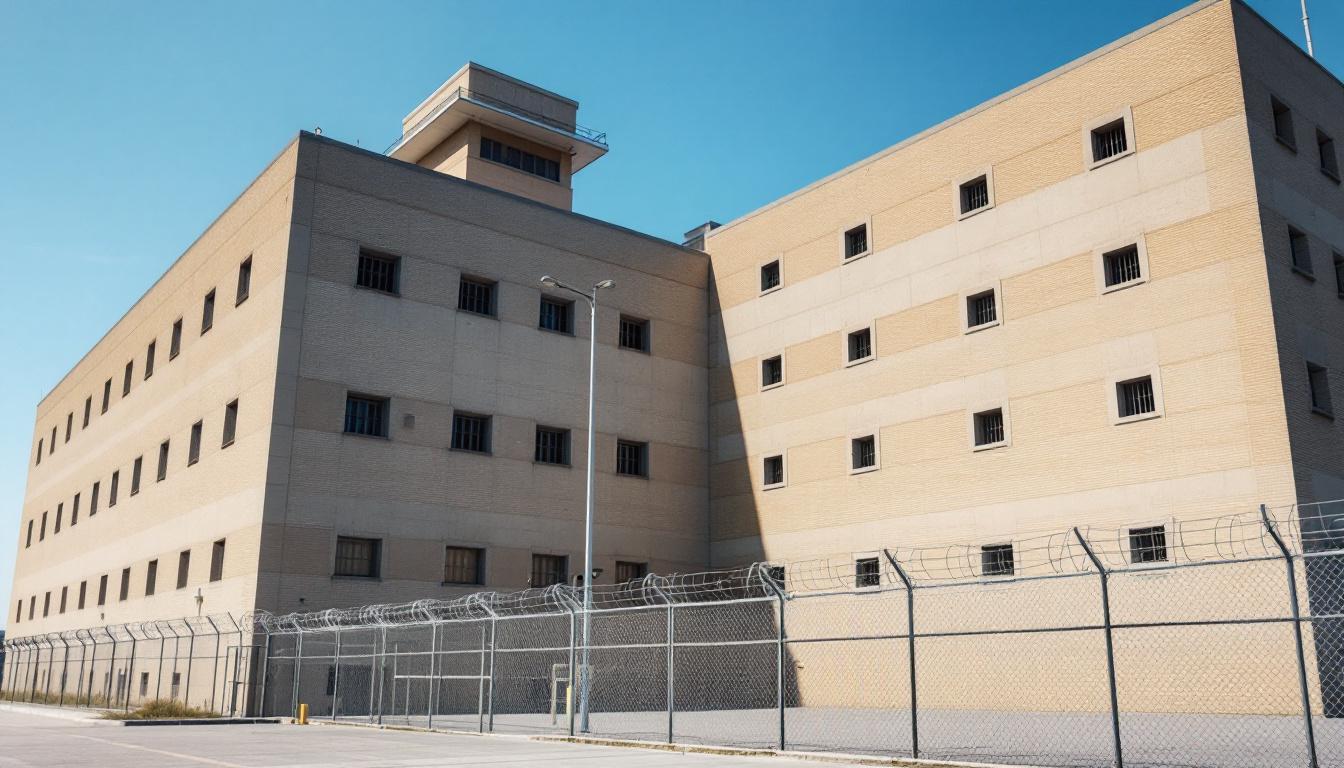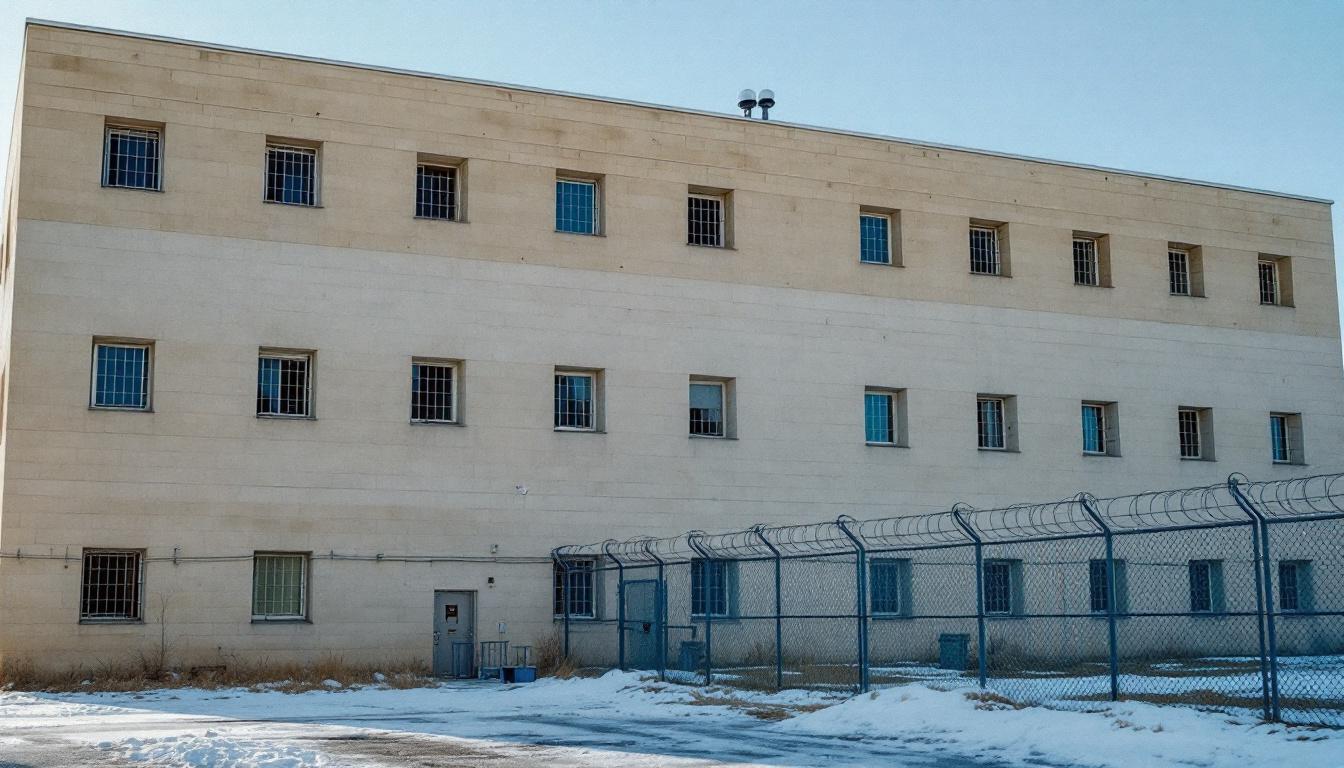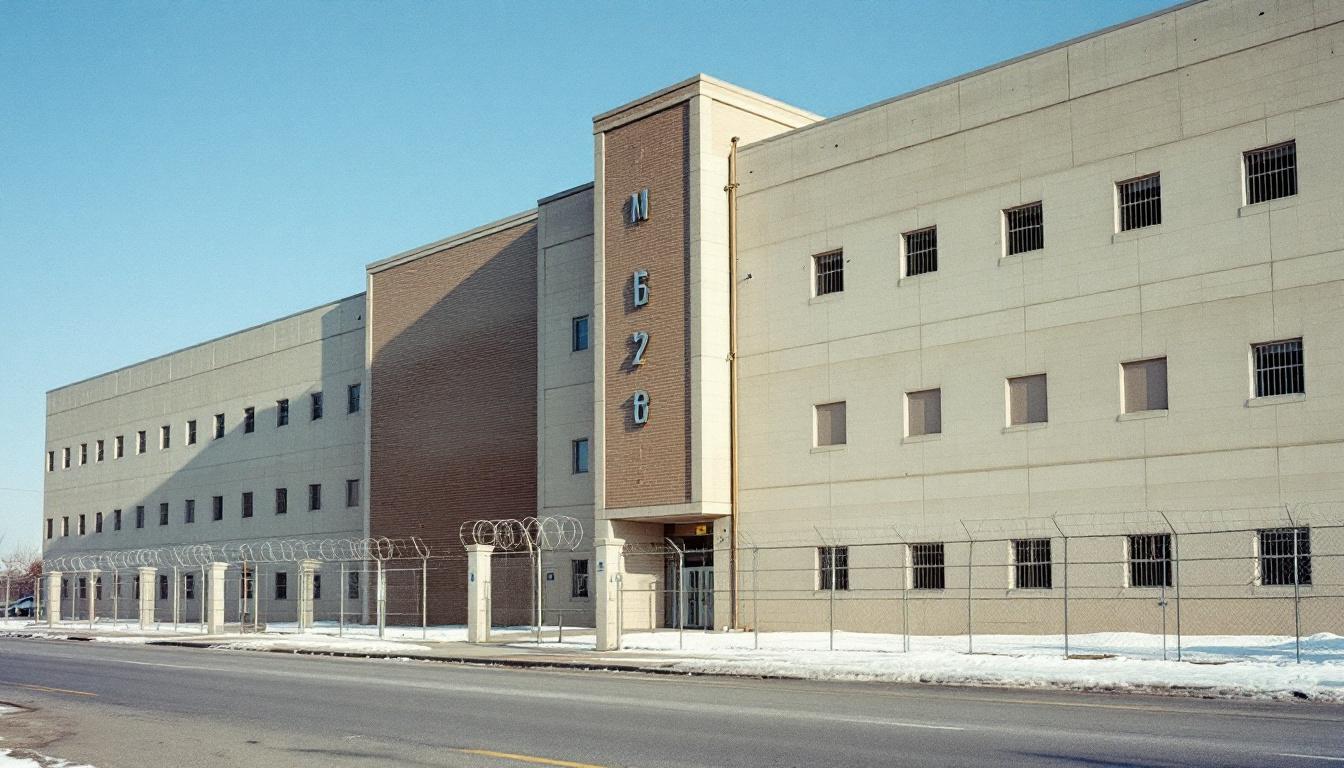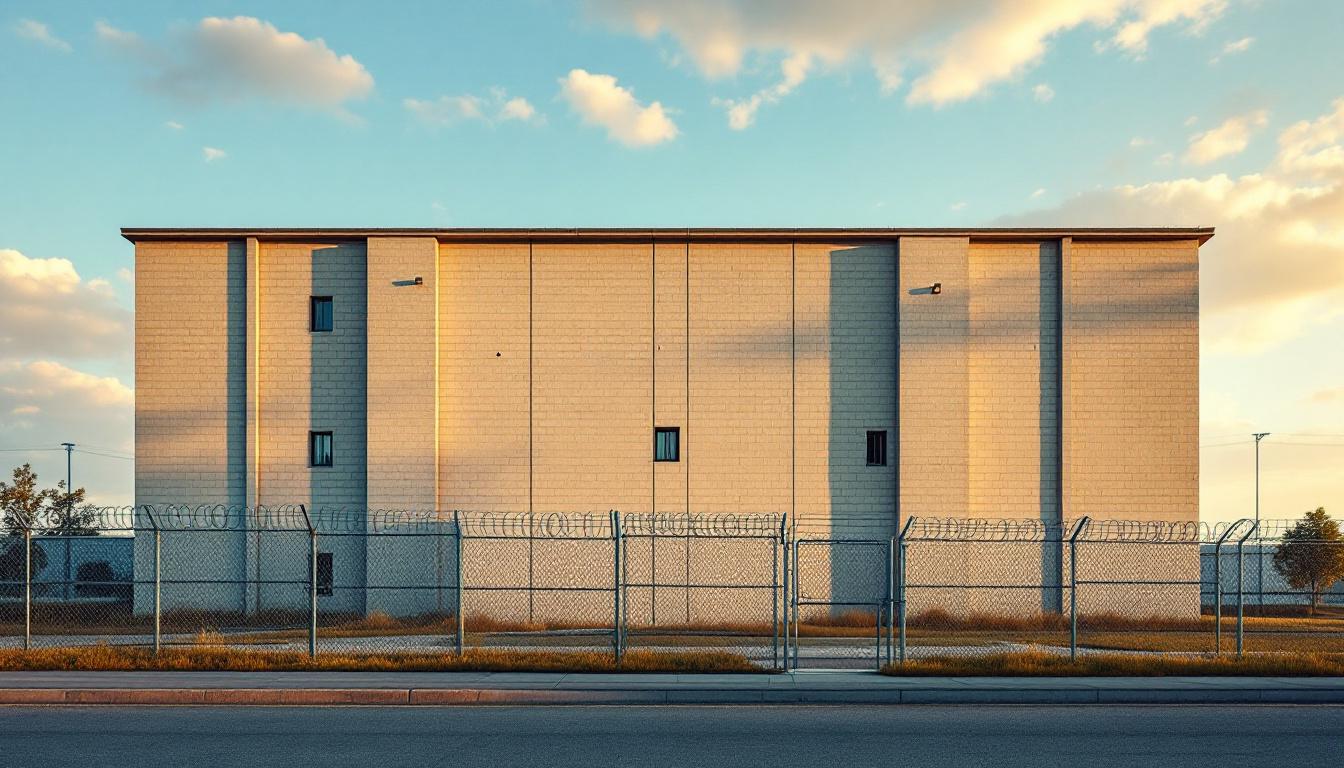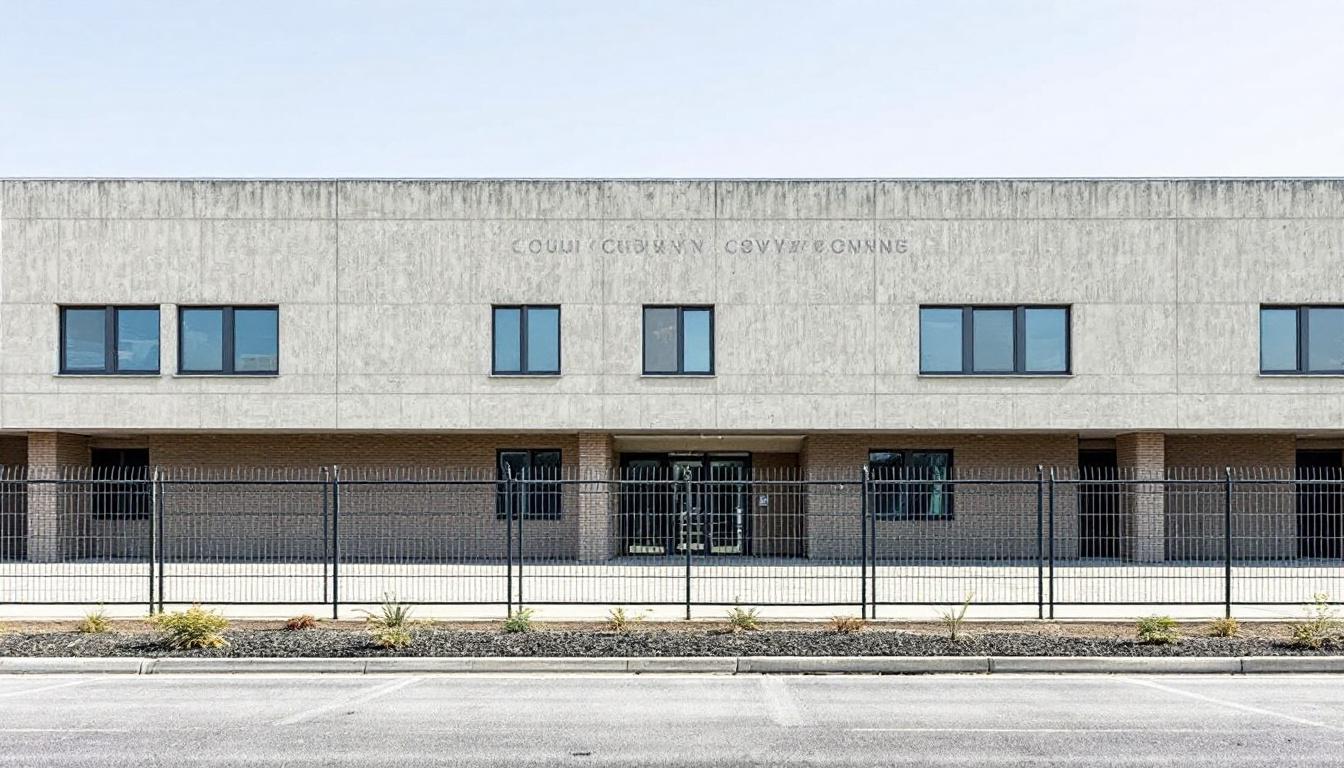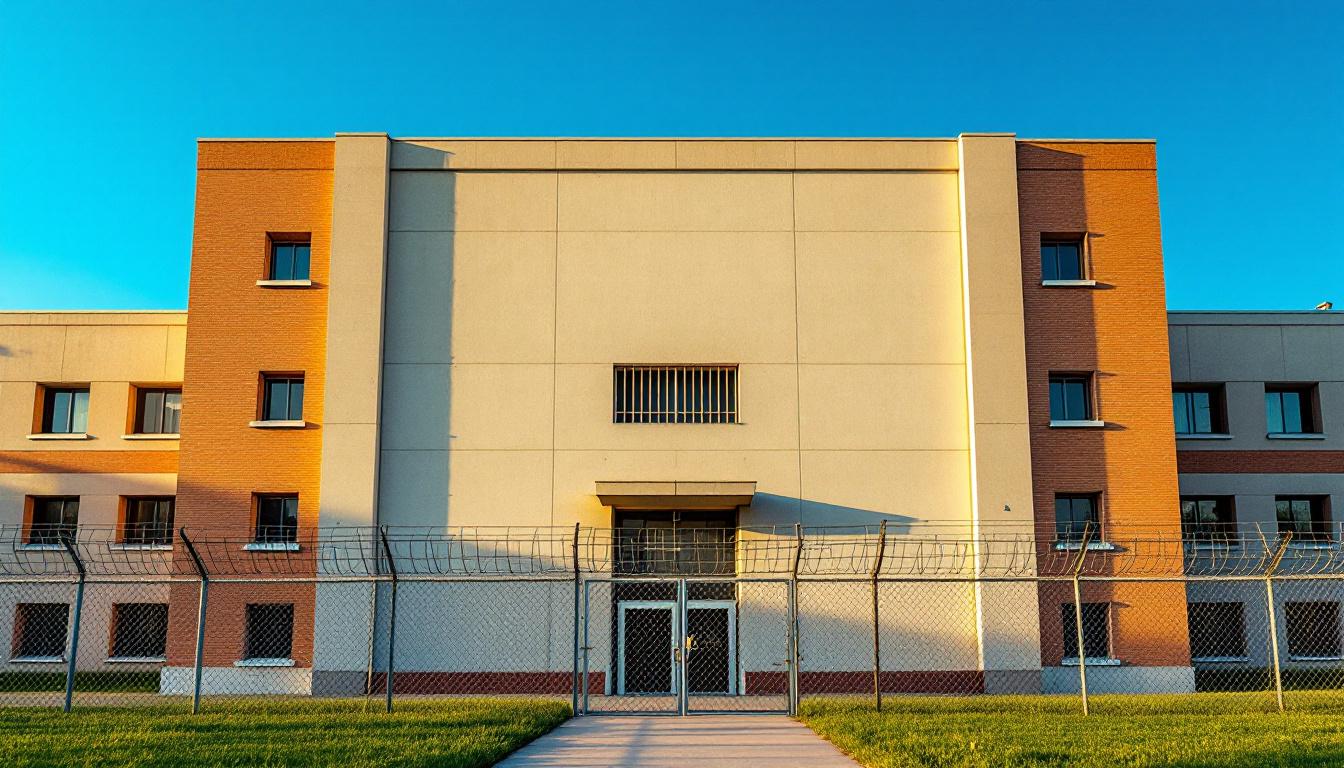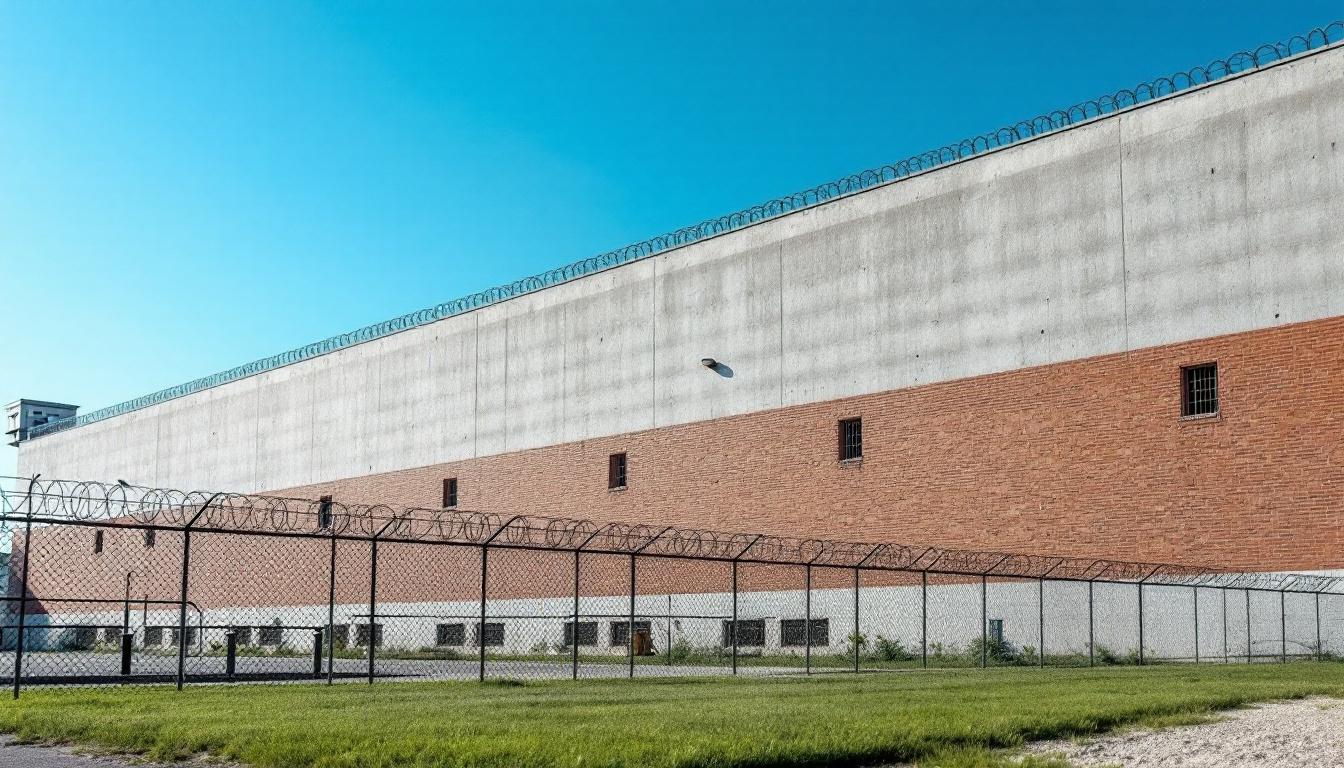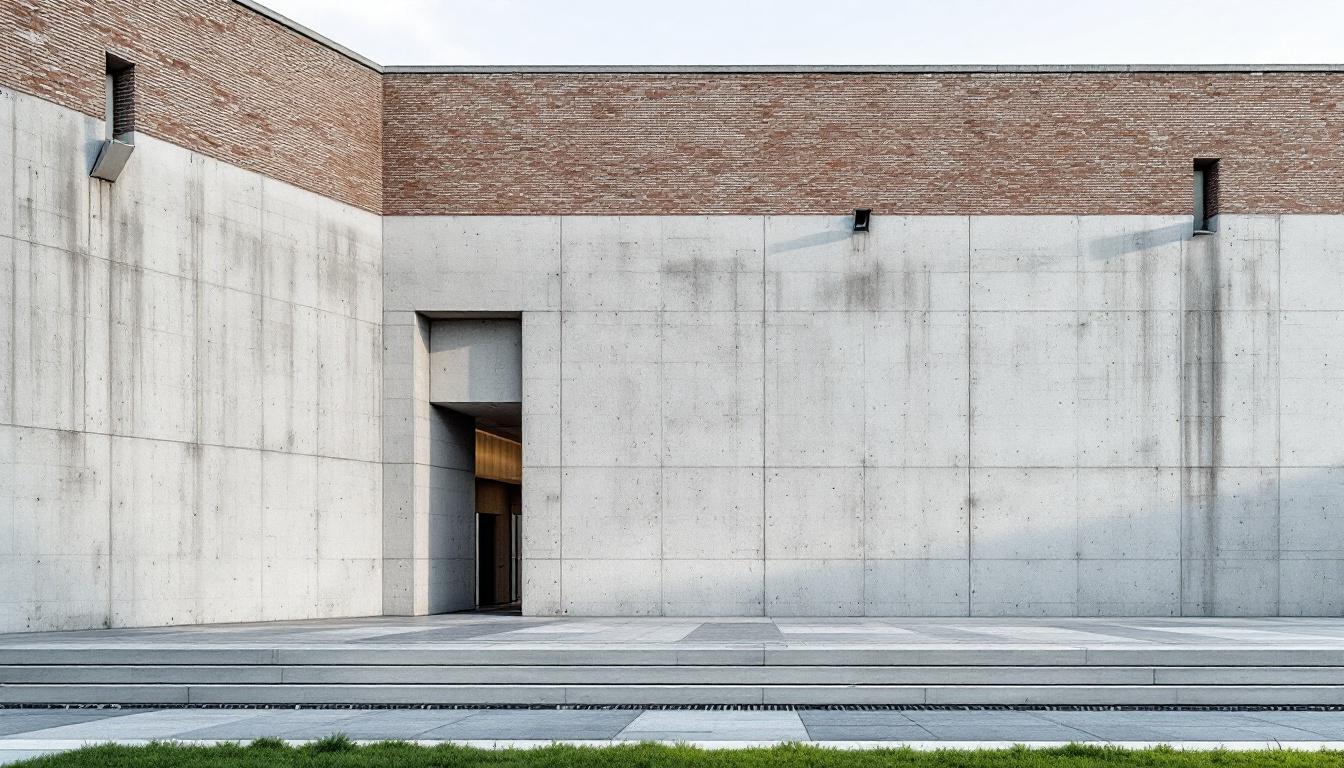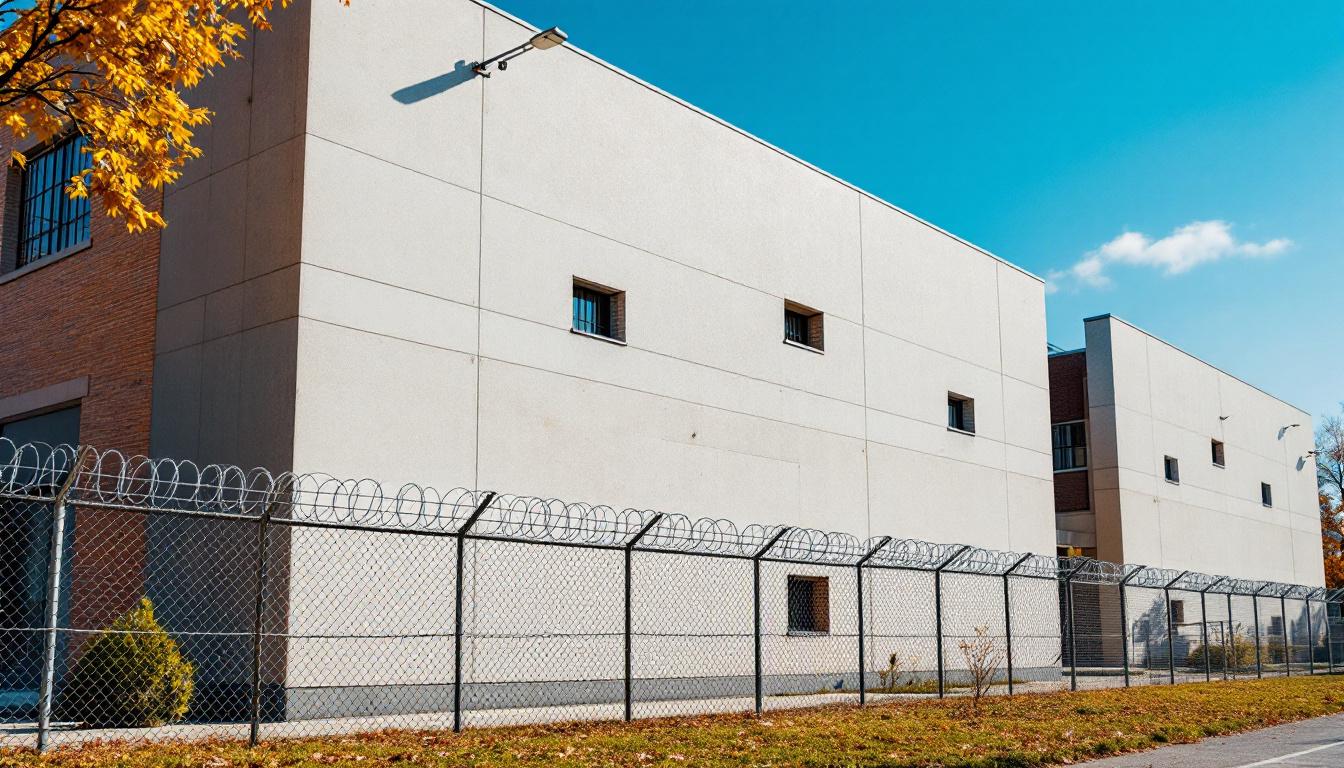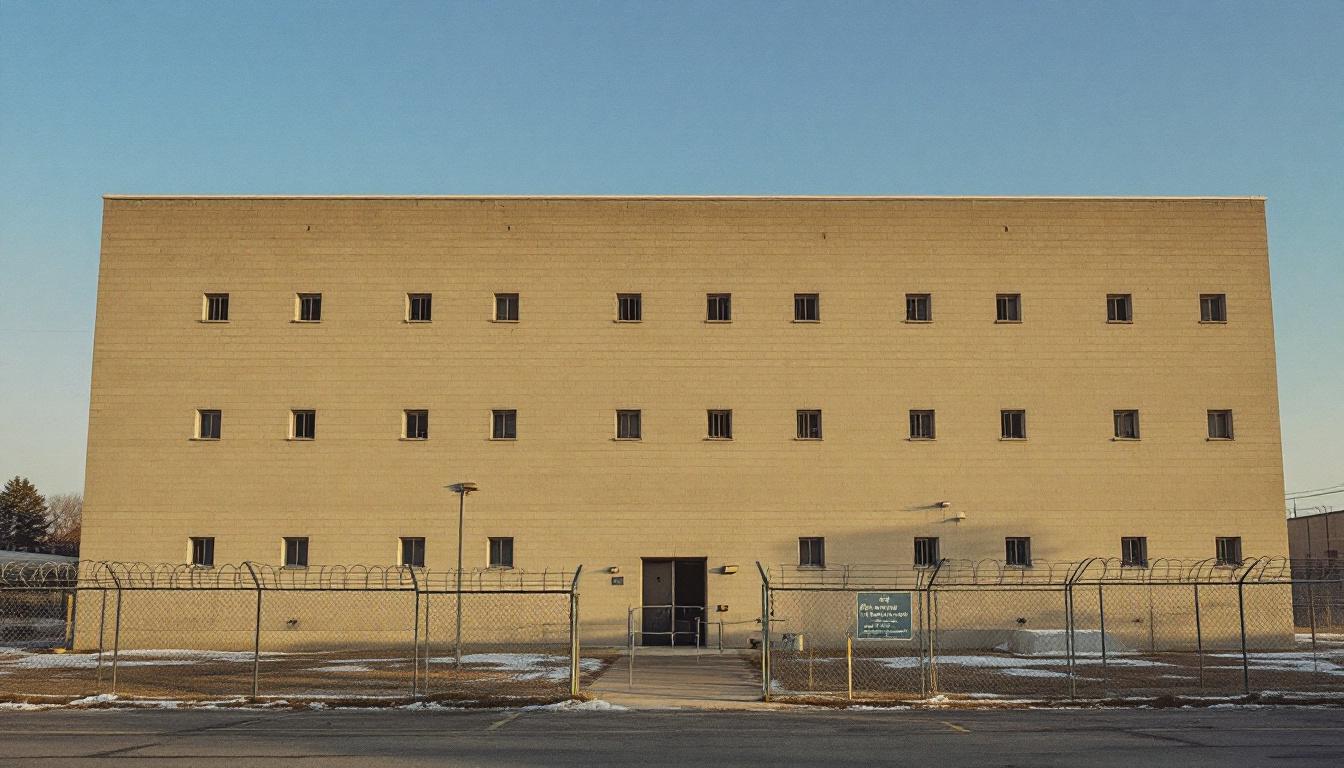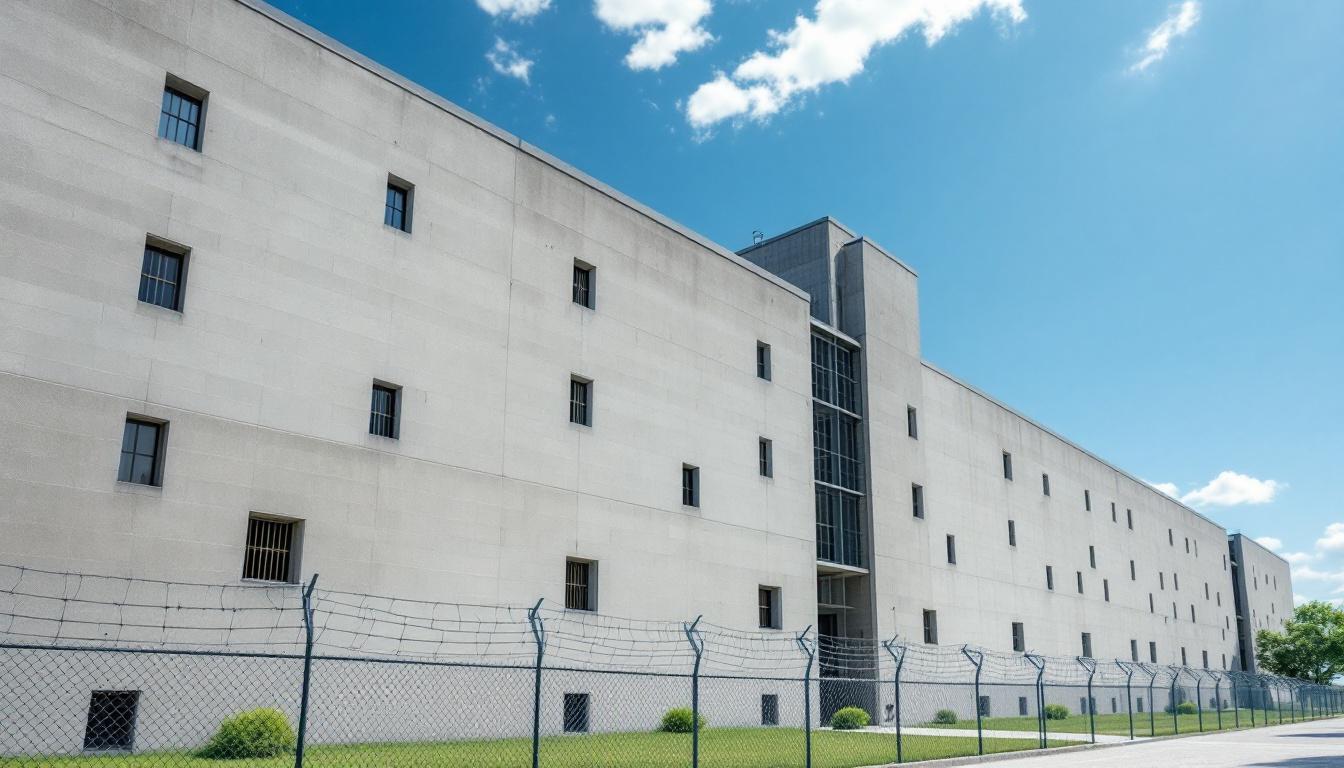
Quick Navigation
How to contact an inmate at Scioto County Sheriff's Office
This comprehensive guide will walk you through how to connect with an inmate at Scioto County Sheriff's Office. Follow the steps below to find an inmate and send letters and photos:
- Search for the inmate using our search tool below
- Create your account or log in to Penmate
- Write your message (up to 6,000 characters)
- Send instantly - inmates receive printed copies daily
Find an Inmate
Search for an inmate to start communicating today
Tip: You can search by first name, last name, or inmate ID number
To contact a person at Scioto County Sheriff's Office start by searching for the person on the official facility website. Perform a search by following these steps:
- Step 1: Enter their first name and last name into the search form and click "Search"
- Step 2: Locate their inmate record
- Step 3: Write down their Inmate ID and any housing information provided
Important! Be sure to enter the person's full name. Nicknames should not be used.
How to Send Messages to Inmates

You can use your phone or computer to send emails, letters, and photos to an inmate. Messages are sent electronically to inmate tablets or kiosks at the facility. If you would like to send a message, start by searching for an inmate at Scioto County Sheriff's Office.
Sending Photos and Postcards

A great way to send love and support to a loved one at Scioto County Sheriff's Office is to send photos and postcards. It only takes a few minutes to send photos from your phone and it makes a huge difference. You can also mail postcards with words of support and inspiration, or design your own postcard for special moments like birthdays and holidays.
Important! Be sure not to send any explicit photos or they may not be approved by the facility. You can also use a photo printing app like Penmate to make sure your photos are printed at the correct size (4x6 or 3x5) and are mailed according to the rules and regulations of Scioto County Sheriff's Office.
Frequently asked questions about Scioto County Sheriff's Office
-
How long does it take to deliver a message?
If you're sending an email message your letter is usually delivered within 24-48 hours. For messages sent via mail you should expect delivery within 3-7 days. All messages will need be approved by Scioto County Sheriff's Office.
-
How much does it cost to send a message to Scioto County Sheriff's Office?
You can send a message free using your phone or mail a message via USPS for the price of a $0.60 stamp and envelope. You can also purchase credits or e-stamps from services starting at $1.99.
-
What services can I use to contact an inmate at Scioto County Sheriff's Office?
Penmate
You can use Penmate to send letters and photos to an inmate from your phone. It's an easy way to stay in touch during your loved one's incarceration. Use the inmate locator to find an inmate's location and contact information, then you can send messages within a few minutes.
Securus messaging
Securus may be another option for communicating with an inmate at Scioto County Sheriff's Office. You can create a friends and family account and purchase credits to send messages. All messages will be reviewed and must be approved by the facility.
JPay
Some county jails and state prisons may support sending messages with JPay. You must register an account with the system, find your loved one, and purchase stamps to send messages. For some locations you can also attach photos.
Smart Jail Mail
You may also check if Smart Jail Mail is available at Scioto County Sheriff's Office. Smart Jail Mail is operated by Smart Communications and has contracted with some state and county jails. After purchasing credits, your messages and photos are sent to the facility, printed out, and then handed out to your loved one.
-
What is the mailing address of Scioto County Sheriff's Office?
Mailing address:
Scioto County Sheriff's Office
1025 16th St
Portsmouth, OH 45662
Phone: (740) 355-8261Business hours:
- Monday: Open 24 hours
- Tuesday: Open 24 hours
- Wednesday: Open 24 hours
- Thursday: Open 24 hours
- Friday: Open 24 hours
- Saturday: Open 24 hours
- Sunday: Open 24 hours
-
What are the visiting hours at Scioto County Sheriff's Office?
Visiting hours at Scioto County Sheriff's Office vary by housing unit and security level. Generally, visits are scheduled on weekends and holidays, with some facilities offering weekday visits. Contact the facility directly at (740) 355-8261 or check their website for the current visiting schedule. Visits typically last 30-60 minutes and must be scheduled in advance.
-
What items are prohibited when sending mail to Scioto County Sheriff's Office?
Prohibited items typically include: cash, personal checks, stamps, stickers, glitter, glue, tape, staples, paperclips, polaroid photos, musical or blank greeting cards, hardcover books, magazines with staples, and any items containing metal or electronics. Only send letters on plain white paper with blue or black ink. Photos must be printed on regular photo paper (no Polaroids). Always check with Scioto County Sheriff's Office for their specific mail policies.
-
How do I send money to an inmate at Scioto County Sheriff's Office?
You can send money to an inmate at Scioto County Sheriff's Office through several methods: 1) Online using JPay, Access Corrections, or the facility's approved vendor, 2) Money orders mailed directly to the facility with the inmate's name and ID number, 3) Kiosks located in the facility lobby, or 4) Over the phone using a credit or debit card. Fees vary by method, typically ranging from $2.95 to $11.95 per transaction.
-
Can I schedule a video visit with an inmate at Scioto County Sheriff's Office?
Many facilities now offer video visitation as an alternative to in-person visits. At Scioto County Sheriff's Office, video visits may be available through services like Penmate, Securus Video Connect, GTL, or ICSolutions. Video visits typically cost $10-20 for 20-30 minutes and must be scheduled in advance. You'll need a computer or smartphone with a camera and reliable internet connection. Contact the facility for their specific video visitation policies and approved vendors.
-
What identification do I need to visit an inmate at Scioto County Sheriff's Office?
All visitors must present valid government-issued photo identification such as a driver's license, state ID, passport, or military ID. Minors must be accompanied by a parent or legal guardian who can provide the minor's birth certificate. Some facilities require visitors to be on the inmate's approved visitation list, which may require a background check. Contact Scioto County Sheriff's Office for specific ID requirements and visitor approval procedures.
-
How can I find out an inmate's release date?
To find an inmate's release date at Scioto County Sheriff's Office, you can: 1) Use the online inmate search tool if available, 2) Call the facility's records department, 3) Contact the inmate's case manager or counselor, or 4) Have the inmate provide this information during a call or visit. For privacy reasons, some facilities only release this information to immediate family members.
Facility Overview
Contact Information
Scioto County Sheriff's Office1025 16th St
Portsmouth, OH 45662
Phone: (740) 355-8261
Official Website

About Scioto County Sheriff's Office
County jails serve as vital community cornerstones throughout Ohio’s correctional landscape, and Scioto County Jail, OH exemplifies this essential role within the Phoenix area. Operating as a key OH correctional facility, this institution functions as both a pre-trial detention center and a sentenced facility for individuals serving shorter terms, typically maintaining custody for those awaiting court proceedings or completing sentences of up to one year. The facility’s position in Phoenix places it within southern Ohio’s rural corridor, where community connections often remain strong and family ties play crucial roles in successful reintegration efforts.
The population services at this county jail generally reflect a collaborative approach between law enforcement, judicial systems, and community organizations working toward shared public safety goals. Staff members typically coordinate with local courts, probation departments, and social service agencies to facilitate smooth transitions for individuals moving through the justice system. Programs may include educational opportunities, substance abuse counseling, and work release arrangements that allow eligible participants to maintain employment while serving their sentences. These initiatives often emphasize preparing individuals for successful return to the Phoenix community and surrounding Scioto County areas.
Through its daily operations, the facility contributes to regional rehabilitation efforts by connecting individuals with resources that address underlying issues contributing to criminal behavior. Family visitation programs and communication services typically help maintain important relationships during incarceration periods, recognizing that strong community ties often support long-term success. The jail’s role extends beyond simple detention, serving as a bridge between accountability for past actions and preparation for productive community participation, reflecting the midwest region’s emphasis on practical, community-centered approaches to corrections and public safety.
Programs & Services
Through comprehensive programming designed to address diverse needs, Scioto County Jail demonstrates its commitment to fostering positive transformation among the population. The facility’s approach emphasizes holistic support that recognizes the interconnected challenges individuals face, implementing evidence-based interventions that may supply both immediate assistance and long-term skill development. This multifaceted strategy typically encompasses educational advancement, vocational preparation, and therapeutic services, all structured to promote successful community reintegration while strengthening family connections.
Educational initiatives form a cornerstone of the facility’s programming, often including literacy enhancement, GED preparation, and continuing education opportunities that enable participants to advance their academic credentials. Also available are comprehensive vocational programs that typically feature job training in various trades and industries, complemented by job readiness training that may supply essential workplace skills such as interview preparation, resume development, and professional communication. These educational and vocational offerings work synergistically to expand employment prospects and economic stability for participants upon their return to the community.
The facility’s support services address the underlying factors that frequently contribute to justice involvement, with recovery services playing a particularly vital role in helping individuals overcome substance use challenges through counseling and peer support networks. Also integral to the programming are veteran services that may supply specialized assistance for those who have served in the military, recognizing their comprehensive experiences and needs. Additionally, trauma-informed care principles guide therapeutic interventions, creating an environment where the population can process past experiences while developing healthy coping mechanisms that support lasting behavioral change and successful family reunification.
Daily Life & Visitation
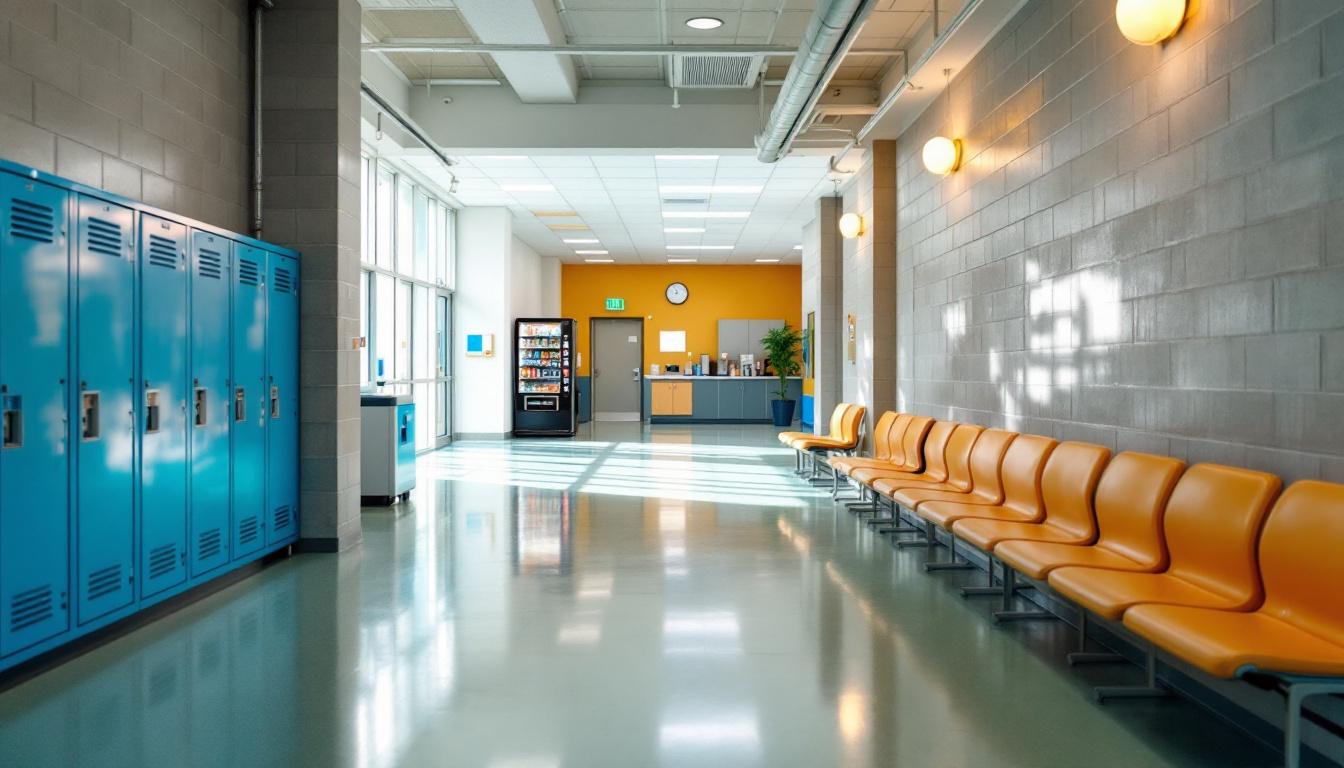
Structured scheduling forms the backbone of daily operations, with carefully coordinated routines that supply stability and predictability for the population throughout each day. Today’s activities consistently follow established protocols that help maintain order while providing essential services, from meal distribution to medical appointments. The facility typically operates on a schedule that balances security requirements with opportunities for the population to engage in various programs and maintain connections with their support networks.
Housing arrangements generally consist of multiple units designed to accommodate different classification levels, with the population assigned to appropriate areas based on various factors including security status and program participation. Living spaces typically include basic amenities such as beds, storage areas, and shared bathroom facilities, while common areas may offer space for television viewing and social interaction during designated hours. Also, the facility usually provides access to personal hygiene items and allows the population to purchase additional supplies through the commissary system, which operates on a regular schedule to ensure everyone has opportunities to obtain approved items.
Structured programming schedules often include educational opportunities, recreational activities, and work assignments that help the population maintain productive routines during their stay. Recreation time may supply access to exercise equipment, outdoor areas when weather permits, and organized activities that promote physical wellness and social interaction among participants. However, family connections remain equally important, with visitation policies typically allowing scheduled visits and phone privileges that enable the population to maintain contact with loved ones, while mail services provide another avenue for ongoing communication and support from the outside community.
Ready to Connect?
Start communicating with your loved one today
Search for an Inmate
